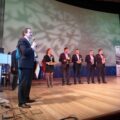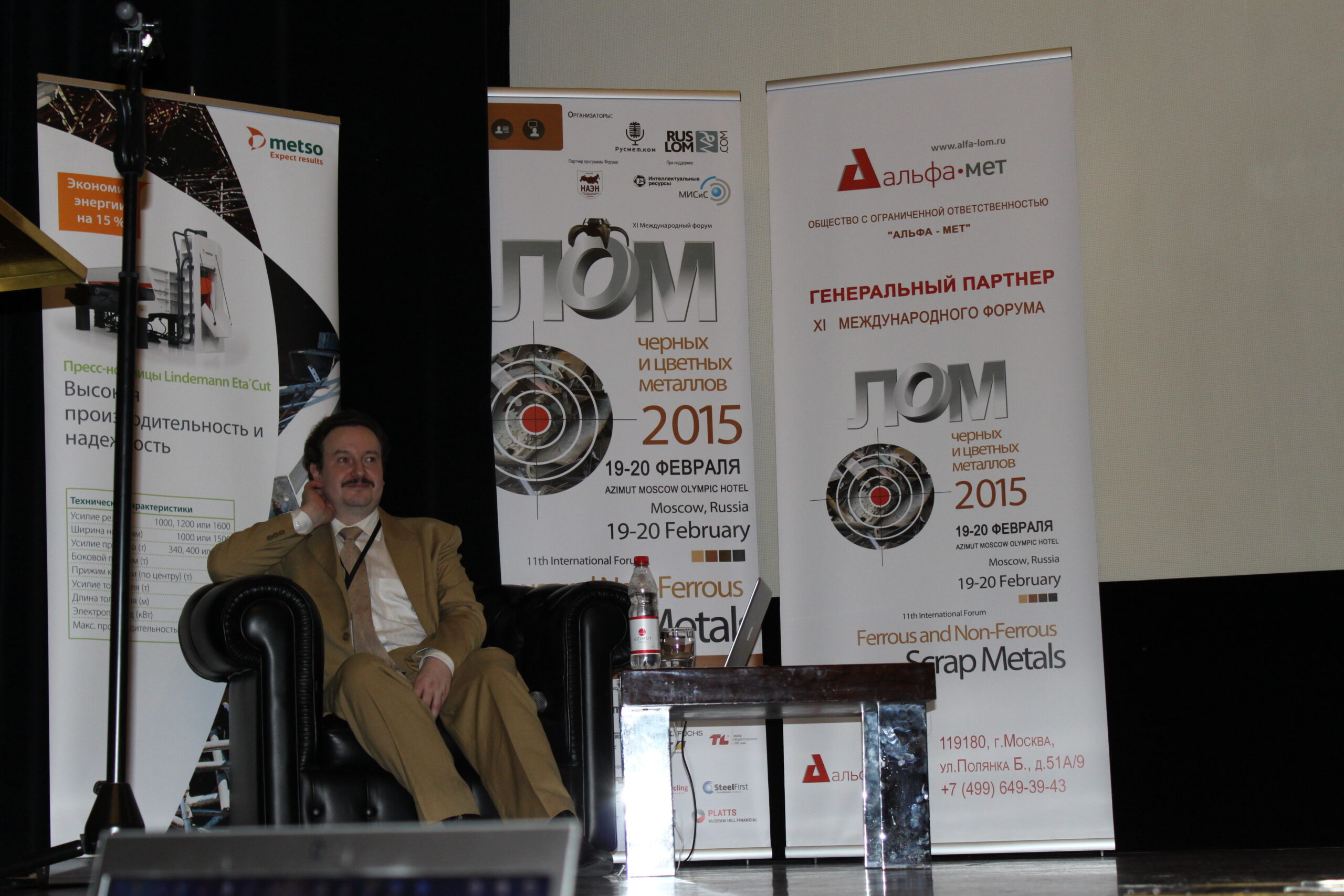
Mir-Expo 2015
Category:
MIR-EXPO2015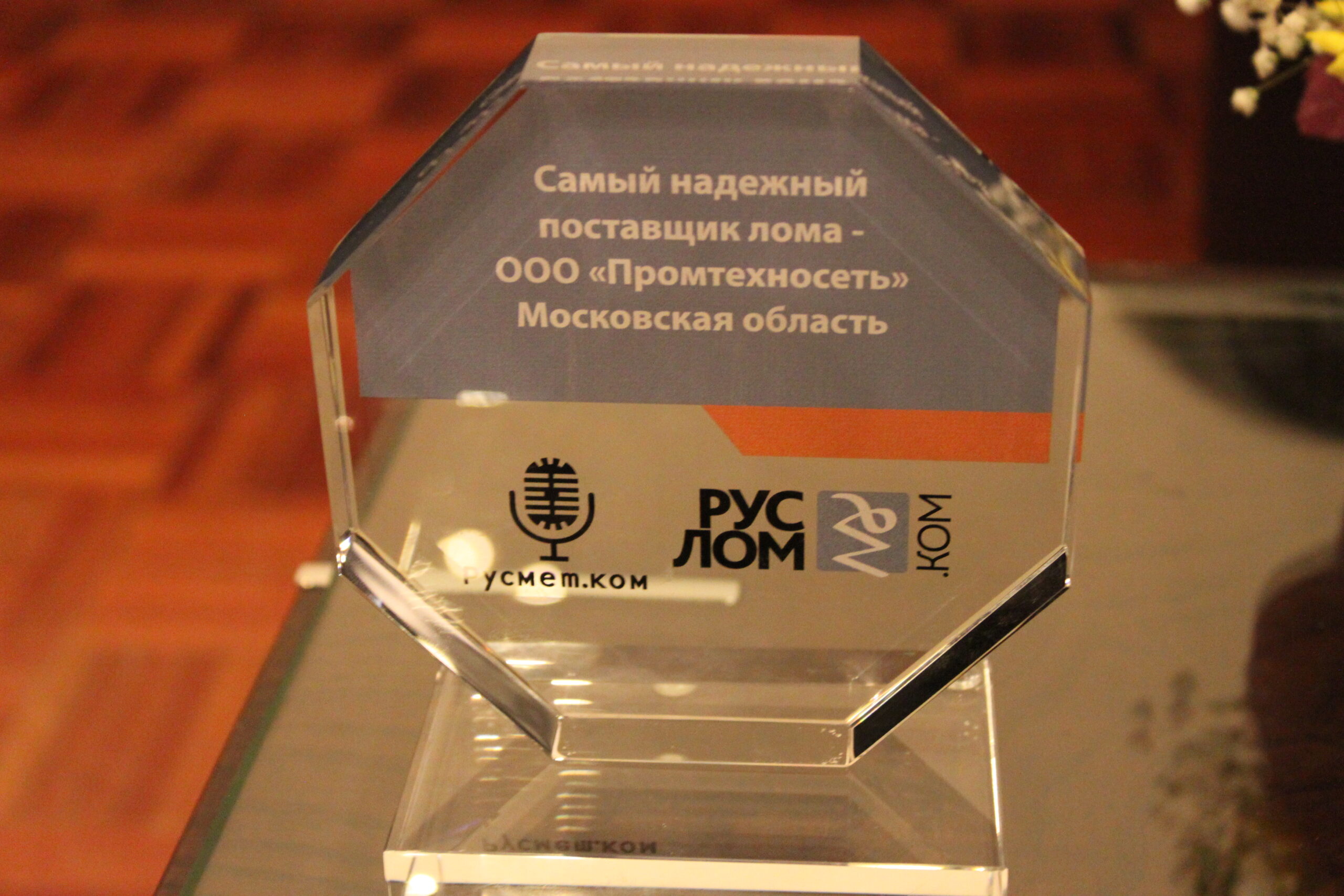
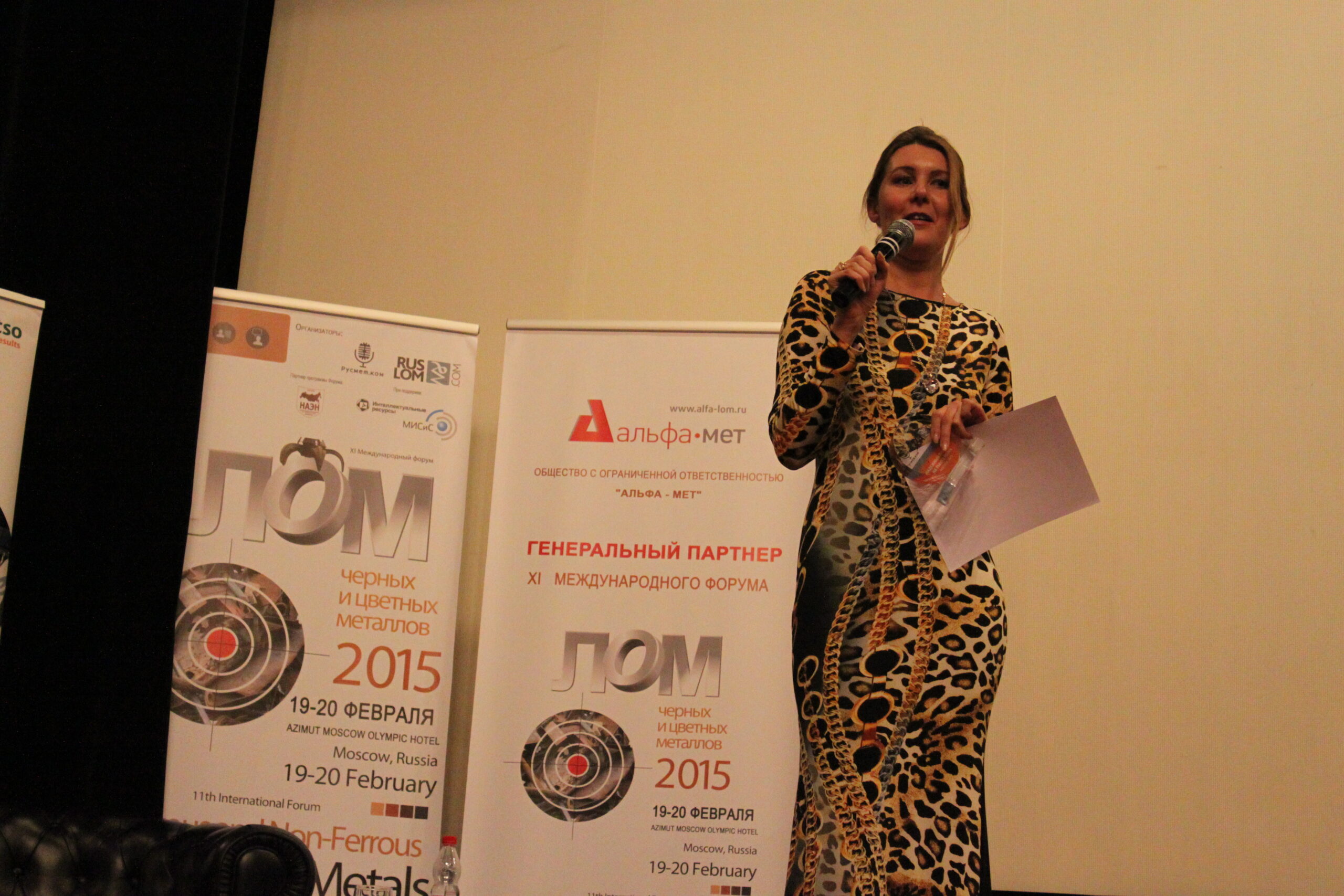

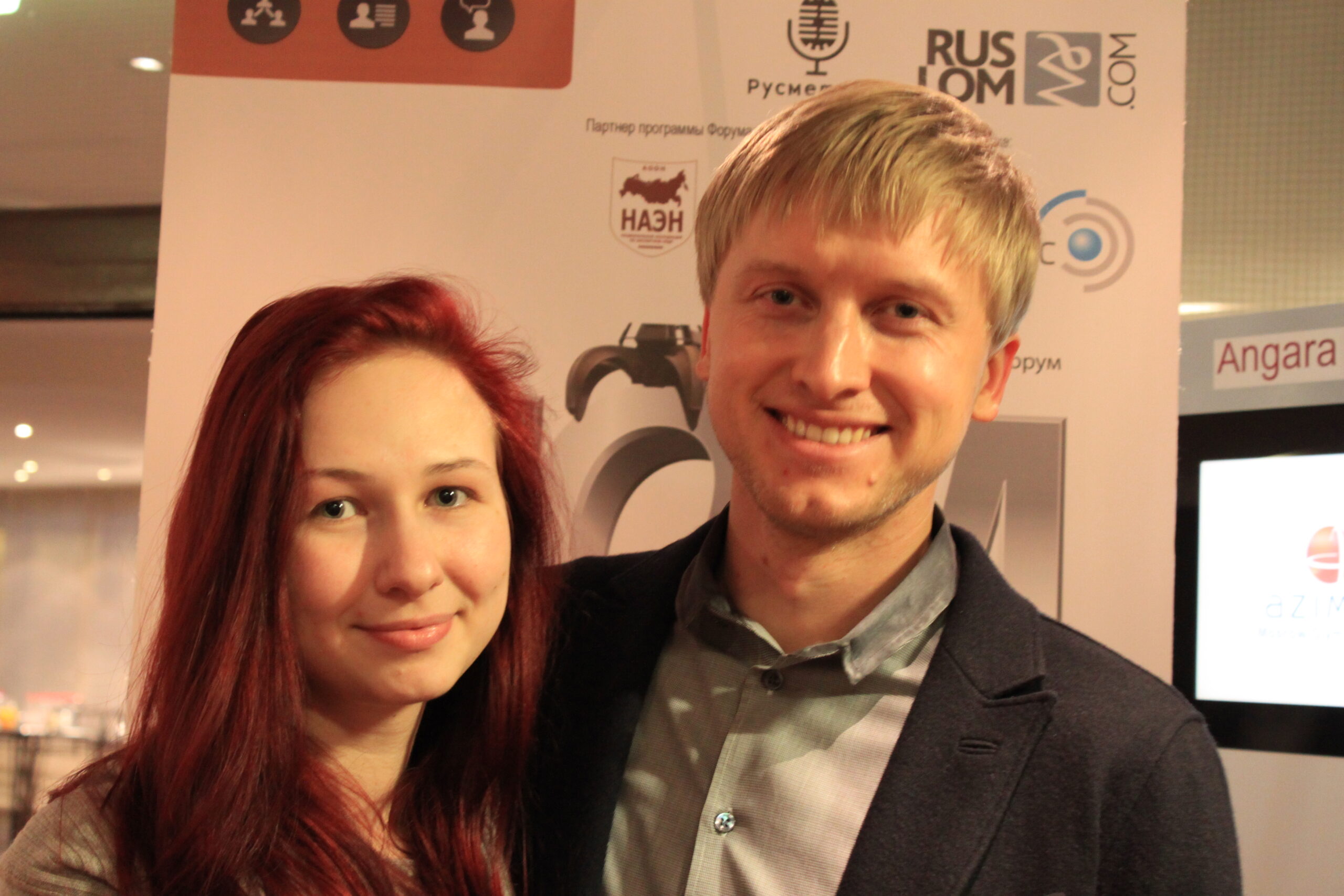
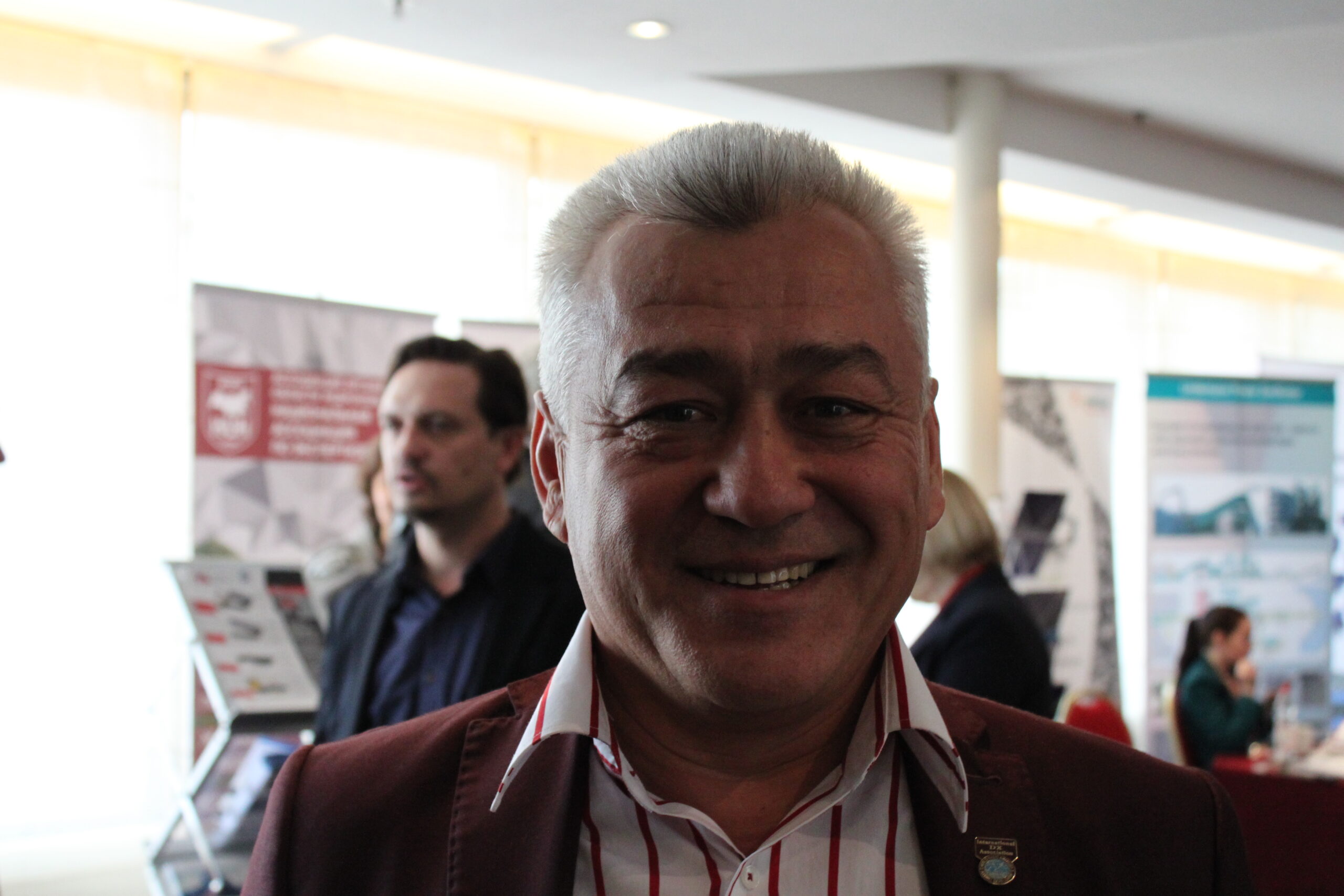
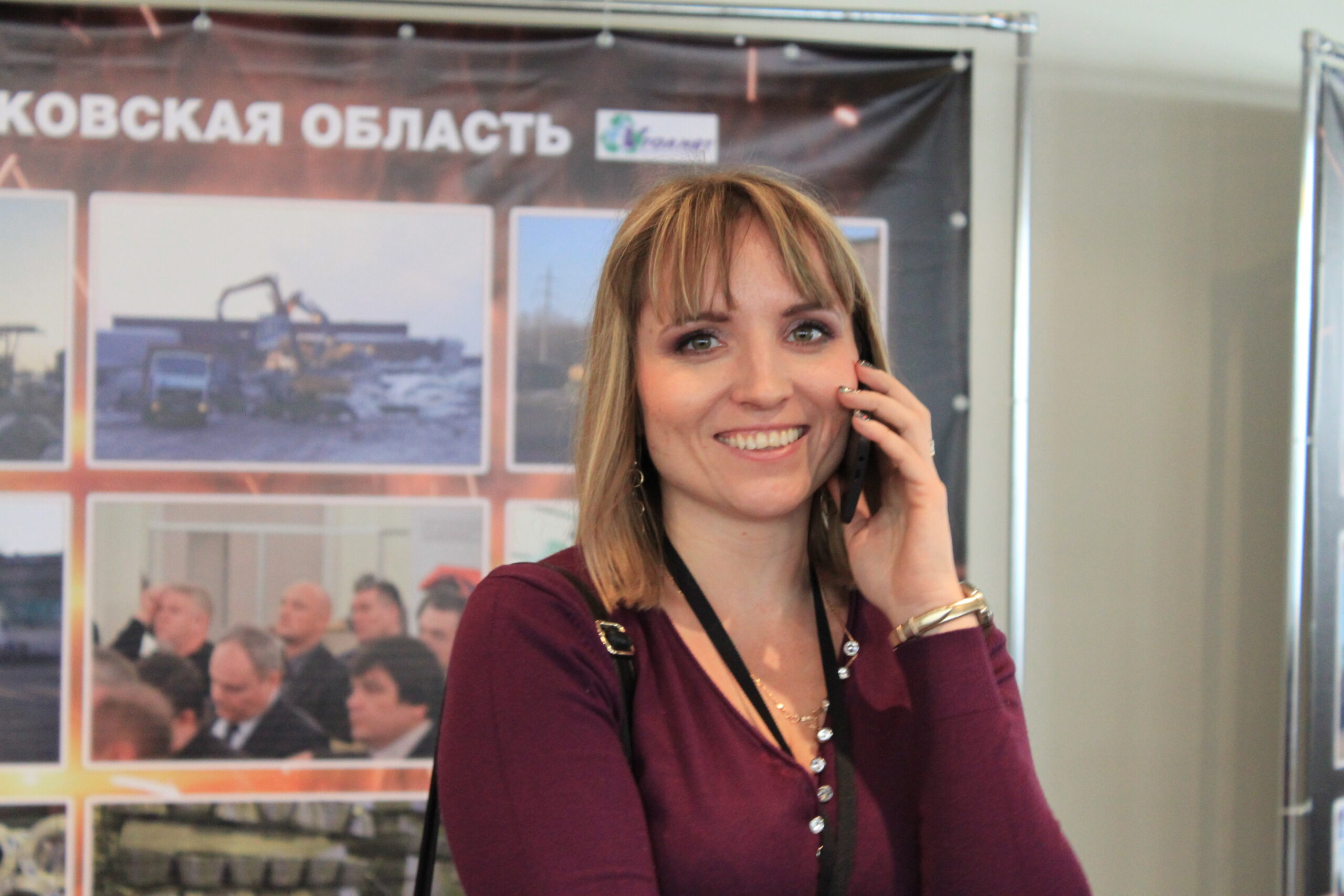
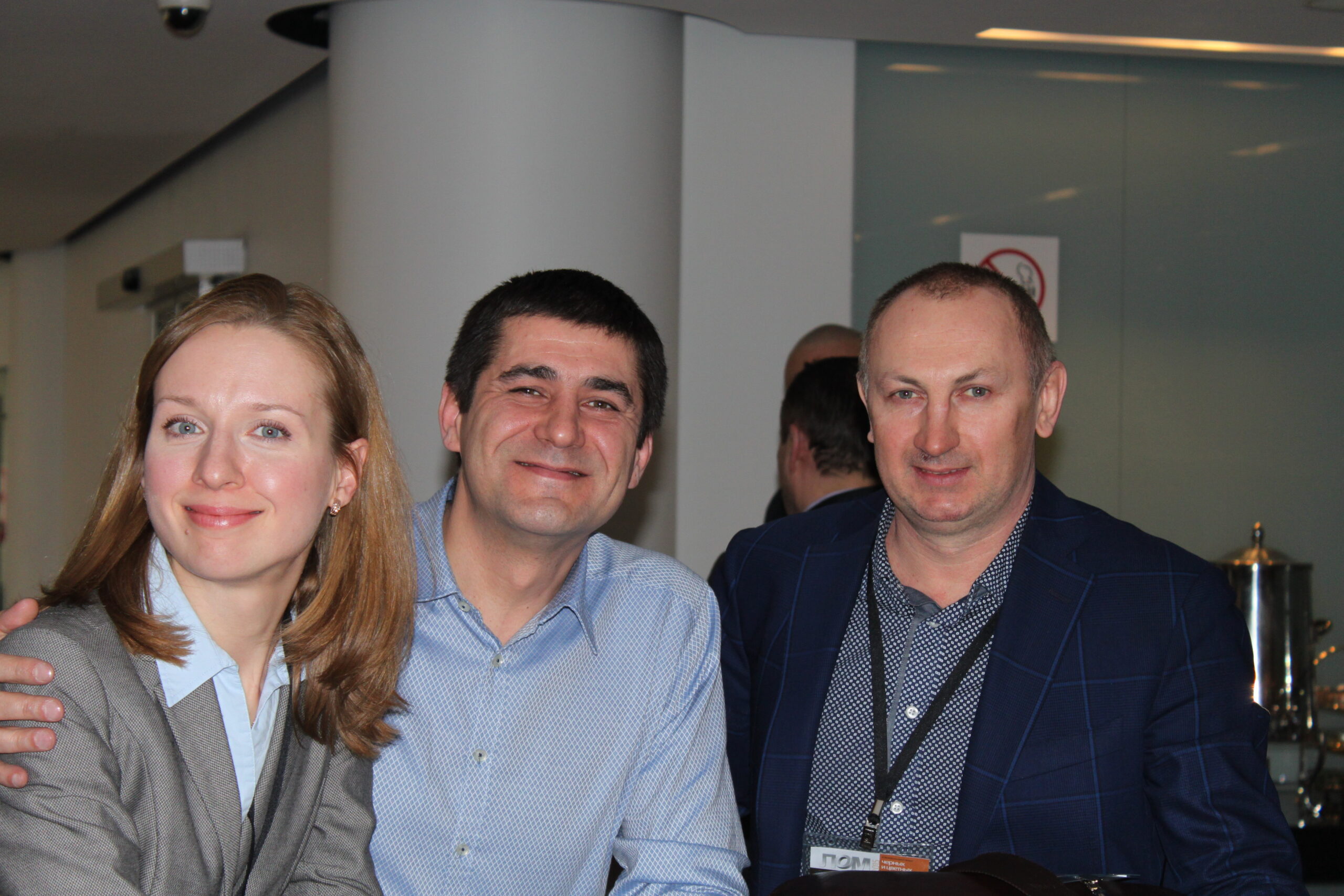
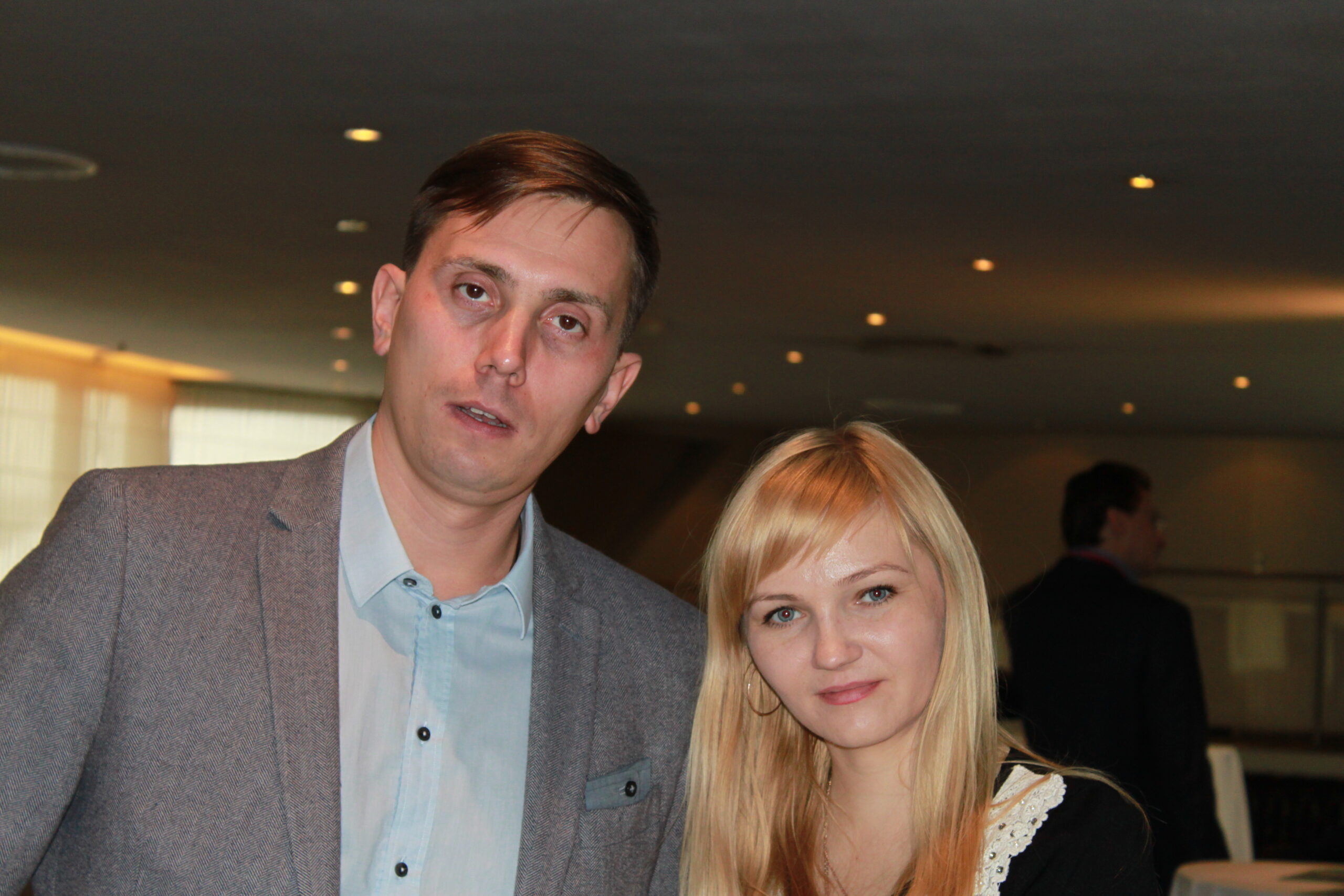
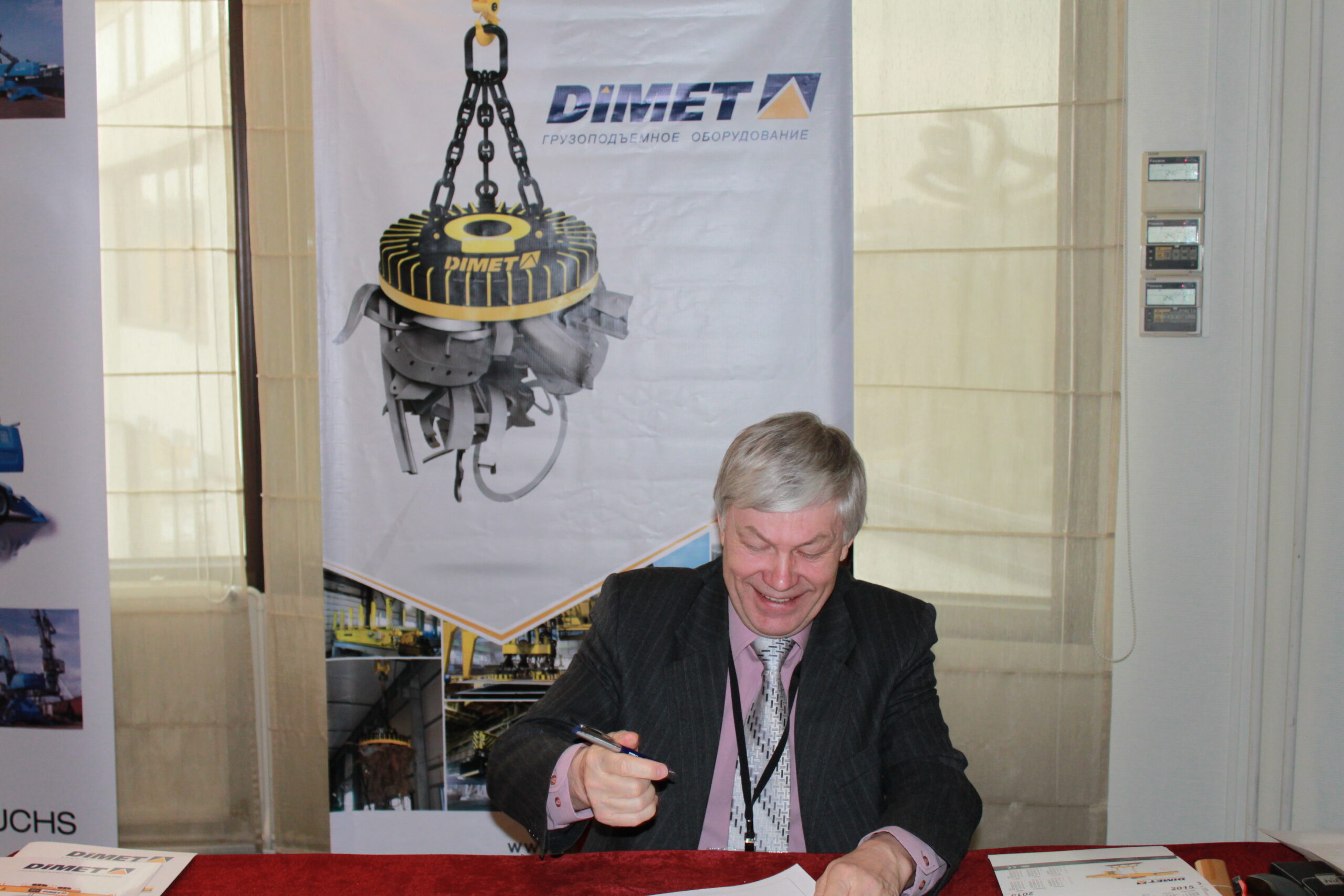
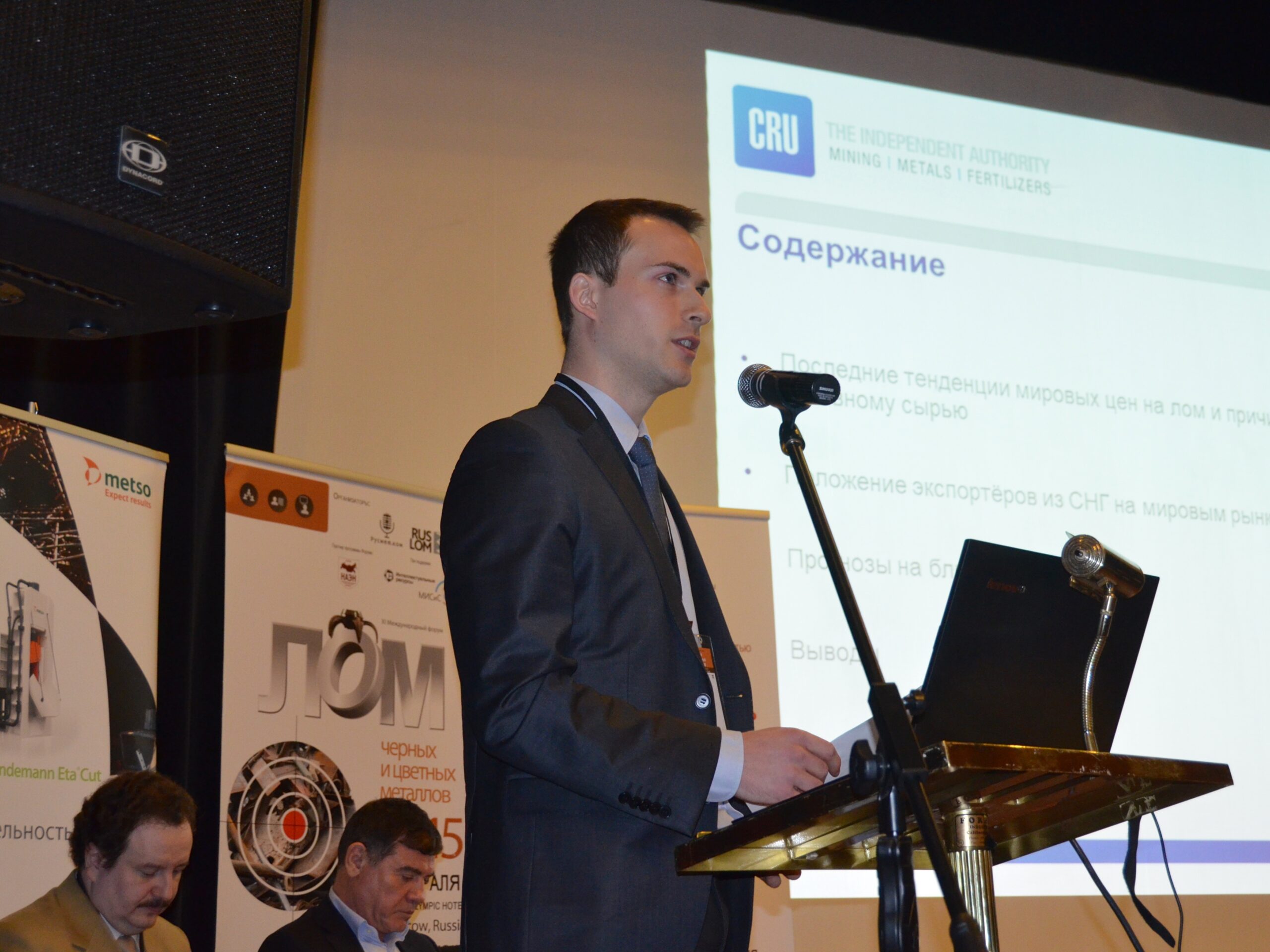
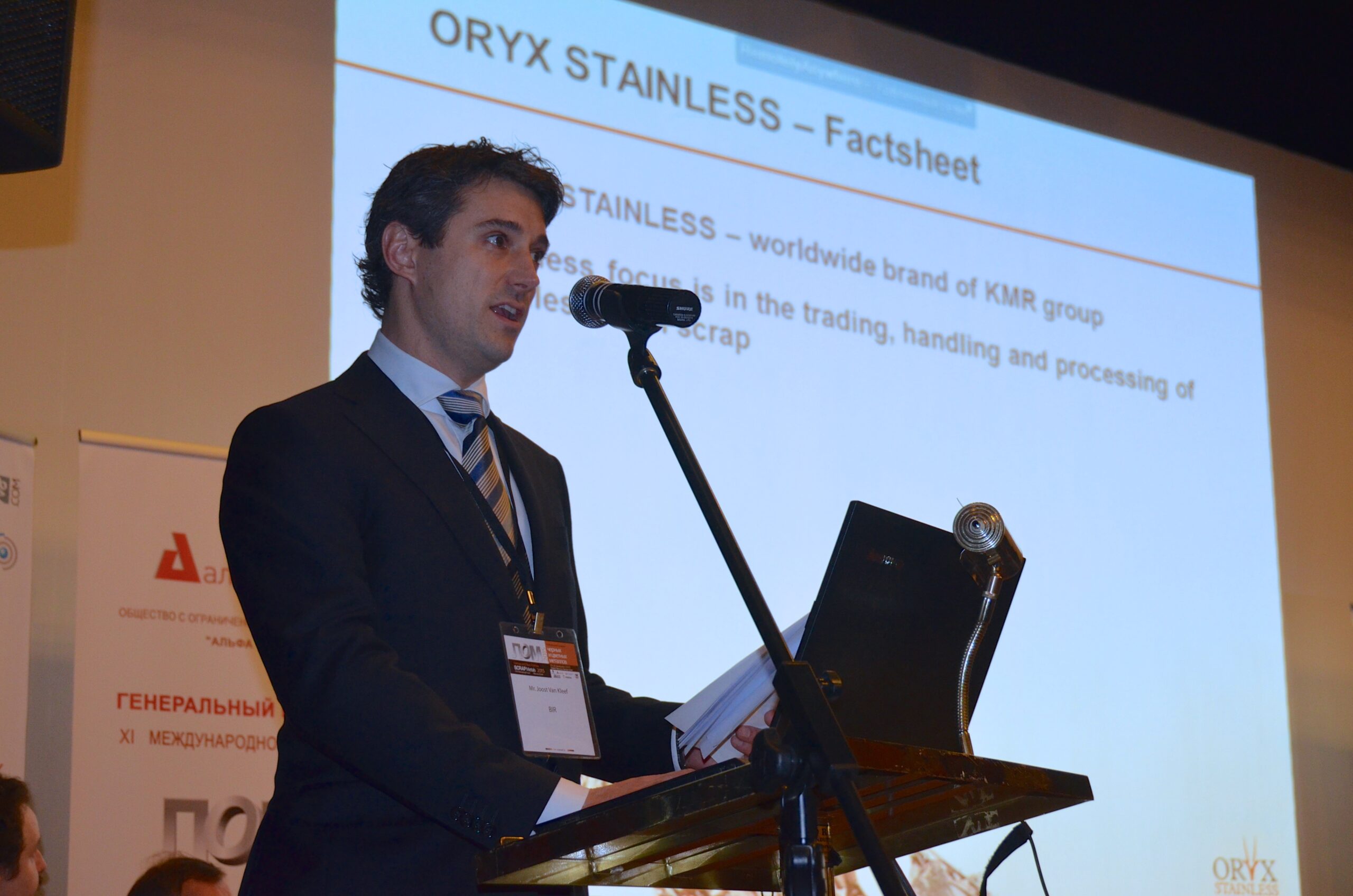
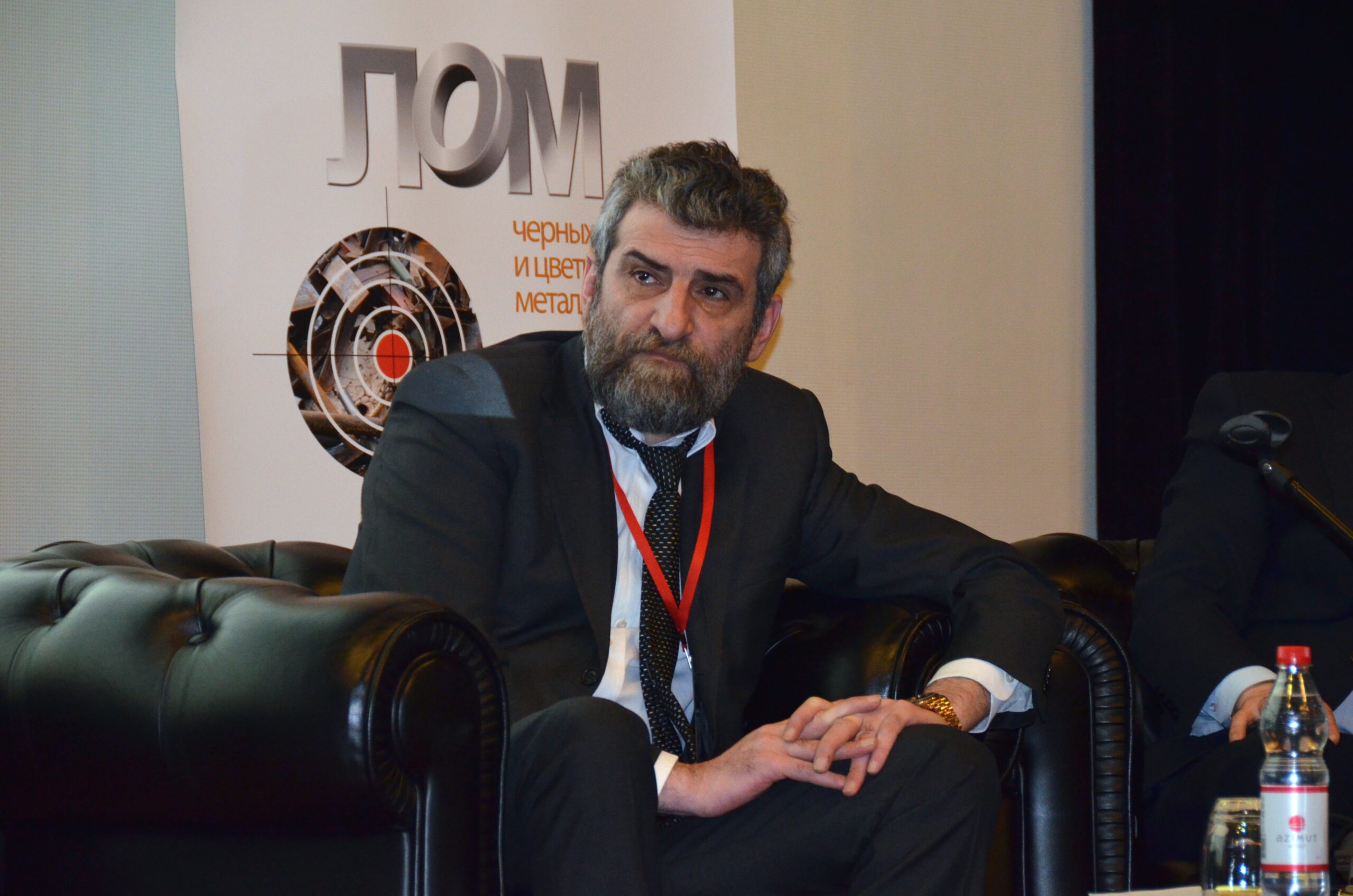
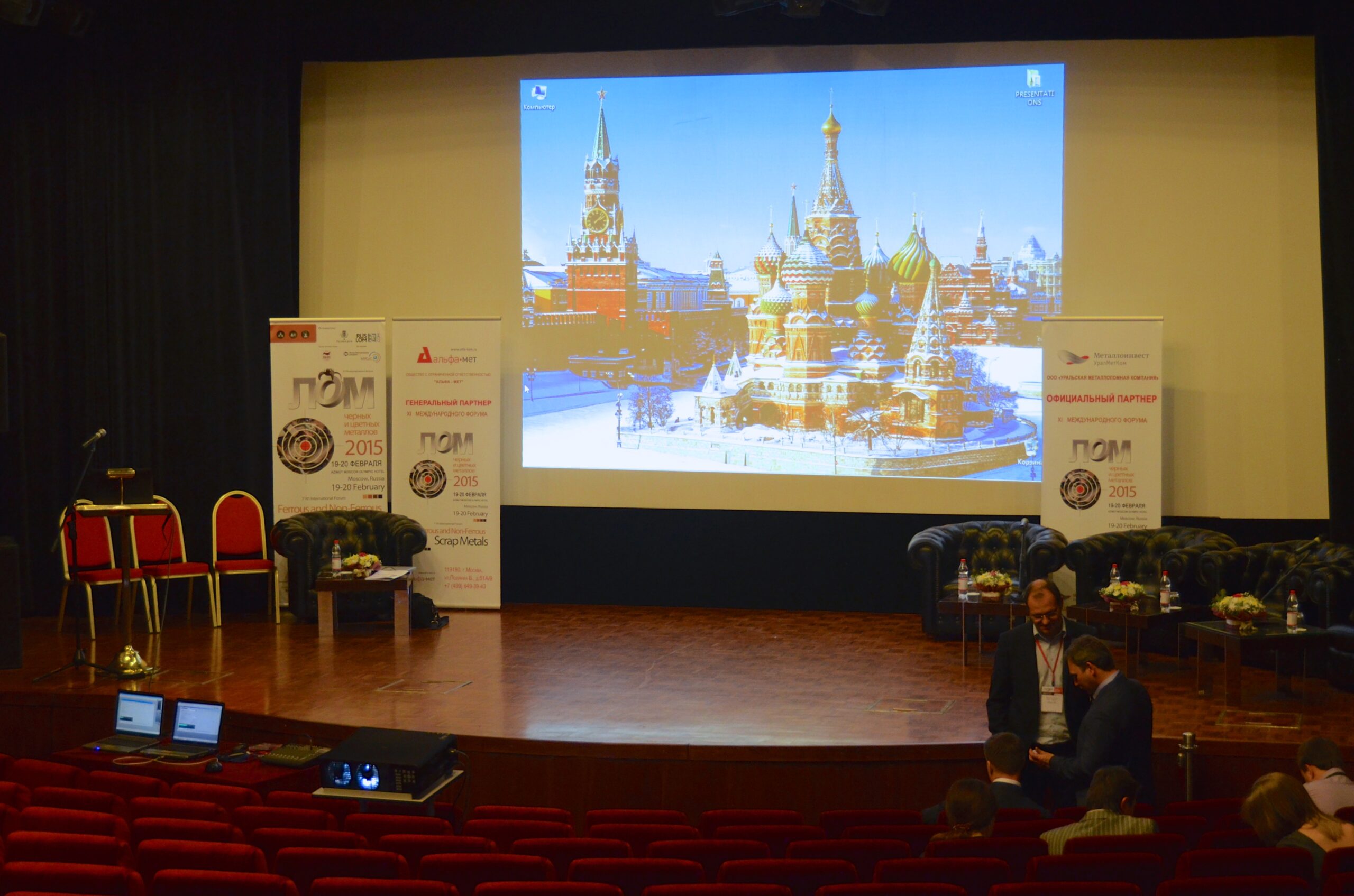
Scrappers vote for a new law
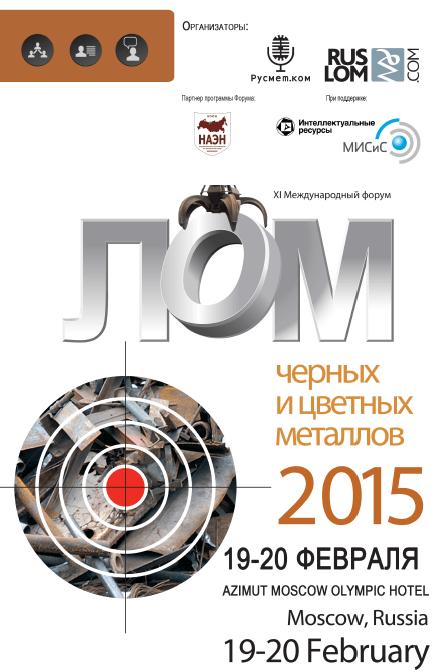 Scrap collection is decreasing every year. What to do to turn the fall into growth?
Scrap collection is decreasing every year. What to do to turn the fall into growth?
In the Russian industry, it is necessary to introduce the principles of the “green economy”, when recycling is an indispensable link in the life cycle of manufactured products. We no longer have the right to slide down to the level of only consumption and primitive consumerism. We no longer have the right to deprive our children of a future by squandering natural and human resources. This was stated by the participants of the XI international forum “Ferrous and non-ferrous scrap metals”, which gathered more than 400 delegates in Moscow on February 19-20, 2015.
Today, consumption in the developed countries of the world is 10 times more than the Earth can feed if all the inhabitants of the planet had such a standard of living. Already in the next two decades, an acute shortage of all types of natural resources is predicted, which will grow every year. That is why the global economy is pushing Russia onto the raw material path, where priceless raw materials are sold at bargain prices. To avoid this, the professional community requires the State Duma to adopt laws on the circulation of natural resources and secondary metals as soon as possible.
The value of explored reserves of solid minerals for ferrous and non-ferrous metals in Russia exceeds 11 trillion US dollars, and the value of the entire metal fund is more than 1 trillion. The task of the state is to constantly study the economic efficiency of the recycling industry and do everything in its power to make this industry grow and prosper. Laws, tax regulations, public opinion – everything must be put at the service of the recycling industry.
Against the backdrop of unfolding crises in entire industries and falling world markets, it was interesting to find out what experts from different countries think about the future. There were reports and expert opinions from representatives of Belgium, Great Britain, Germany, Iran, Italy, Moldova, Russia, USA, Ukraine, Finland, Sweden and Japan. Delegates and speakers from Ukraine were especially warmly welcomed at the forum.
The general partner of the forum, Alfa Met, the official partner of the forum, Uralmetcom, and the sponsor of the forum, Metso Minerals CIS, spoke at the opening of the event, wishing everyone successful work. The delegates remembered the speech of the commercial director of Alfa Met Alexander Nikolaevich Mosyagin, as he stated that the company would become number one in the Russian market. When the moderator asked how it would be possible to do this, the answer was: “Because we will be the best.” The forum organizers thanked Uralmetcom for their support and expressed confidence that the joint work would be effective for all market participants. And Metso Minerals CIS was especially noted for its stability: even in times of crisis, the long-term support of the forum was not interrupted. The moderator drew an analogy here that this is what distinguishes European equipment – stability of work and reliability of relations. Therefore, at the award ceremony, the well-deserved award “Reliable Partner” was received by the Executive Director of Metso Minerals CIS Sergey Yuryevich Babushkin.
First Deputy General Director of FBU “GKZ” and Director of JSC “NAEN”, Artur Evgenievich Rastrogin, spoke on the topic of regulating the market of primary and secondary resources. A new approach to the state management of natural resources is required, when rational subsoil use is considered not only as the transfer of rights to extract resources to subsoil users with subsequent control by the state. This is a passed stage. In developed countries, resource management and conservation of natural resources are considered in close connection with the industry of utilization and processing of secondary resources.
The moderator of the forum, Viktor Viktorovich Kovshevny, noted that annually it is the US Geological Survey (USGS) that publishes monitoring of the state of the mineral resource base, where the state of the market for secondary resources is analyzed for each metal, what share of the market falls on secondary metals. The recycling of ferrous and non-ferrous scrap metal, electronic scrap, and vehicles is a significant source of raw materials for the industry. When the focus is on both the extraction of mineral resources and the collection and processing of secondary metals, this approach will allow us to talk about sustainability and sustainable development in the mineral resource complex of Russia.
You can not immediately embrace immensity. It is necessary to start by studying the market trends for secondary aluminum, cobalt, copper, iron, lead, nickel, tin, and tungsten. And then bring the picture to such metals as, for example, mercury, which today in Russia is simply thrown into landfills in the form of millions of unrecycled fluorescent lamps, poisoning the earth and water.
Further, BIR representative Joost Van Kleef spoke about the global scrap market, with the emphasis on special steel scrap, because special metallurgy has much more growth prospects compared to the carbon steel market. He also noted that market participants themselves play an important role in setting professional standards for working in the scrap market. The state can only act as an observer, but not a trendsetter, because it is in principle unable to understand technical details and industry professional secrets. Later, on the sidelines of the forum, the speaker spoke about the political motives for sanctions against Russia, since the business does not need any restrictions – European companies see Russia as a reliable and strong partner.
CRU International Analyst Dmitry Popov made an interesting report on the state of the international scrap market and opportunities for exporters from the CIS. After the report, a dialogue began on the prospects of Russian and Ukrainian metallurgists, due to the fact that they have become world leaders in terms of cost reduction. The reason was the devaluation of national currencies. In today’s environment, this is good for exports. On the other hand, the government is talking about regulating exports, because one after another, consumers of rolled metal complain about price increases that they cannot bear. Even the Tver Carriage Works recently stopped for 1 month.
A round table devoted to the new law on scrap began next. The moderator asked the experts to briefly express their position on a number of issues. The discussion was attended by: AKRON, Morozov Pavel Anatolyevich, General Director; OMK-Ecometal, Vladimir Borisovich Krasilshchikov, General Director; “Promtekhnoset”, Artyukh Igor Vladimirovich, Chairman of the Board of Directors; PK “Vtormet”, Sharuda Alexander Nikolaevich, Chairman of the Board of Directors; “MAGLYUG”, Lalayan German Grigoryevich, General Director; Volodkin Vladimir Vladimirovich, President of NP NSRO “RUSLOM.COM”.
1st question. Why change something? Does the current licensing system suit you? Experts united in one opinion: the current system has become obsolete. The state cannot control the situation on the ground, and as a result, licenses have become an instrument not of control, but of additional requisitions. In the case of Moscow, a ban was generally introduced and a license can be obtained only by a court decision. There is a problem for “white” companies that have a large number of branches in the regions. The situation with inspections is unpredictable: fire, environmental, tax, and the meaning of all inspections are to get hold of the business.
A lot of spending is on unnecessary things: for example, an average company spends more than 300 thousand rubles a year on cash registers, and losses on a national scale exceed 1 billion rubles. Naturally, all this is reflected in the price of scrap, and ultimately – in the price of rolled metal. They also remembered the state “recycling program”, when the actual lack of control over recycling led to the fact that more than 60% of the machines sent for recycling ended up with “auto-dismantlers”.
2nd question. Is the state ready to transfer its powers? Experts and members of the RUSLOM.COM working group, participants in meetings with the Government Office and the Ministry of Industry and Trade of the Russian Federation, said that the state is ready. The very idea of transferring control functions of the state to the market has been actively discussed for more than two years. The Russian legislation provides for the institution of self-regulation for this. But if the state transfers its powers, then all this should be real – participation in a self-regulatory organization should become mandatory. You can also look at the problem from the other side: when the state is actively withdrawing or has withdrawn from many sectors that are critical for the economy, a “vacuum” is formed that must be filled by market participants themselves. This is also evidenced by world experience. They also touched upon the topic of lengthy amendments to the Federal Law on Production and Consumption Waste.
3rd question. Who can and should take over the powers of the state? How can this happen? Experts said that in 2012, a national self-regulatory organization of scrap processors and vehicle recycling RUSLOM.COM was established, i.e. the instrument of self-regulation already exists. The new law on scrap will consist of several articles that will be included in the Federal Law on Production and Consumption Waste. This law will introduce mandatory self-regulation and become the power of self-regulatory organizations. The main thing is not to repeat the mistakes made during the introduction of self-regulation in construction.
4th question. I would like to recall the famous children’s cartoon about a kid that could count to ten. Who will be affected by the law, and how will it divide market participants? Let’s count together. The experts drew attention to the fact that the key task of the law is to determine the powers of the SRO: what regulates “self-regulation” and how. In summary, there are 4 types of activities in the scrap market: collection, sale, processing, storage. The idea of the new law is to simplify and liberalize the first two types as much as possible, because more and more scrap is required. But here, too, there are issues for discussion. Status of individuals: allow everyone or need them to acquire a patent, then a reasonable amount of patent fees should be determined. Another question: the essence of self-regulation is not only regulation, but also liability insurance – SRO has a compensation fund. What could be the loss or damage that can be compensated? Obviously, this is environmental damage, which means compensation should be tied to existing sites. Then it is necessary to determine the size of the compensation fund based on the number of sites. This level will be determined by federal law. And here another question immediately arises: an organization receives admission to the market from SROs, but what about the sites? So far, everyone is inclined to believe that each site should have a separate SRO permit. The discussion participants also noted that the compensation fund is placed in financial management companies and can only be spent on compensation for damage.
5th question. Our experts are representatives of companies that have already joined or are about to join the NSRO “RUSLOM.COM”. Comment on why you did it. What do you want to say to other market participants? Each of the experts presented their views and talked about their decision to join. In general, it turned out that everyone repeated again that “We do not want it to be like in construction when there are 1000 organizations, but in fact, it is not clear who is responsible for what. We need a single organization that expresses the consolidated opinion of the industry and, at the same time, is a tool for managing this industry. All over the world, the principle has long been that it is professional associations (guilds, unions, associations, …) that set the industry standards. We invite everyone to join! Now the conditions for entry have been created, feasible for everyone – depending on the size of the company. These are by no means “draconian” contributions, beyond the strength of many.”
The moderator of the forum summed up: the main thing is that we, the participants of NSRO “RUSLOM.COM”, do not keep anything secret, therefore we are now discussing the new law publicly. Then the forum delegates were asked to vote and express their attitude: do we need a new law or not? More than 90% voted for the need to develop and adopt a new law on scrap.
The Roadmap, enlarged, will be next. The starting point is the forum. After the forum, on the basis of the collected comments, a draft of the future law is created, which is then corrected and edited in accordance with the comments of the forum delegates, and then with the comments of the Government, the Ministry of Industry and Trade, the Ministry of Finance, the Federal Assembly of the Russian Federation, NP “Russian Steel”. Administrative and organizational actions for the adoption of the law in all decision-making corridors of power. PR work to promote the law, explain its necessity, and main provisions. In parallel, the strengthening of NP NSRO “RUSLOM.COM” with new members: at least 100 new members in 2015. In parallel – the development of rules and standards and organizational work within “RUSLOM.COM” to work under the new law on scrap.
“The Scrap Market in 1999-2030” is a report by Oleg Stanislavovich Ryabko, Vice President of NP NSRO RUSLOM.COM and Managing Director of Uralmetcom LLC, which was presented and voiced by the forum moderator. If we turn to the Strategy for the Development of Ferrous and Non-Ferrous Metallurgy for 2014-2020 and for a period up to 2030, adopted by the Ministry of Industry and Trade of the Russian Federation, then we will not see anything about the scrap market, except for general and inflated figures. And we know that if nothing is done, the scrap collection will fall. “RUSLOM.COM” today is the only organization that can convey the interests of scrap collectors to the state. Previously, the loud voice of independent processors was the MAIR company, well known in the late 90s and early 2000s. This company, without exaggeration, was the industry leader. The formation of many market participants took place in this organization. RUSLOM has something in common with MAIR – these are ambitious goals and a team of like-minded people. And the main difference is that “RUSLOM.COM” defends the interests of the entire market, and not an individual company.
We don’t collect as much as we can. The annual potential volume of metallurgical raw materials (depreciation scrap) is estimated at 3% of the metal fund. As world experience shows, up to 1.5% of the metal fund is lost annually as a result of the interaction of the metal with the environment, which is about 22 million tons per year. This figure is close to the volume of scrap metal consumption in Russia at present. The amount of depreciated scrap, taking into account its share of 2-3% of the metal fund, will reach 35-45 million tons. However, it is necessary to take into account the share of the collection of scrap from the potential volume of the metal fund. Practice shows that the collection of scrap in Russia does not exceed 70%, therefore, the volume of available depreciation scrap will be 27-32 million tons.
The mission of NP NSRO “RUSLOM.COM” is to lead the industry. Set a new format for the relationship between consumers and scrap suppliers for the development of this market. Create conditions for effective relationships between suppliers and consumers. Among the priority, tasks is the creation of a vehicle recycling industry.
The structure of the scrap market in Russia
According to Oleg Stanislavovich Ryabko, it is important that all consumers of scrap, both management companies and operating companies, as well as scrap processing companies from all subjects of the federation, join the NSRO “RUSLOM.COM”. The participation of independent scrap collectors is critical. Conditions for entry should be accessible to all and worked out depending on the size of companies. The federal level is the participants who wish to influence the situation in the entire industry. The regional level is the companies that are interested in their regions of presence. One in the field is not a warrior. None of us individually can do anything, and no matter what size the company is – small or large, like ours. Alone no one will be heard. “RUSLOM.COM” must include as many market participants as possible in order to be a real force .
The issues of interaction between suppliers and consumers of scrap were discussed in the Seven Sisters hall. At the same time, the business ombudsman for ecology and nature management of the Office of the Commissioner for the Protection of the Rights of Entrepreneurs under the President of the Russian Federation Ildar Alievich Neverov spoke about the regulation of the export of scrap in the main hall of the forum. How will the duty on the export of scrap at a rate of 40% affect? Or a ban, as suggested by the Ministry of Industry and Trade? Appeals of market participants were voiced with concern about a possible ban on the export of ferrous scrap in order to “protect domestic metallurgical enterprises from negative market fluctuations for steel products and regulate the export of rolled metal by limiting raw material flows”.
Ildar Neverov said that today the export of scrap metal in the amount of about 3.5 million tons per year is not and simply cannot be a significant factor in pricing in the market of scrap and ferrous metal waste with a total annual consumption of scrap metal in the Russian Federation of 45 million tons. At the same time, the exporters of this raw material represent a large group of enterprises and organizations involved in the treatment of scrap and waste metals, with a revenue of about 900 million US dollars per year, modern production equipment, with tens of thousands of jobs, staffed by qualified personnel, with a successful history of development over the past 20 years, with an established reputation in the international arena. In addition, the presence of exports is a stabilizing factor both for prices in the domestic market and for the volume of scrap procurement and the balance of supply and demand.
As a result of the discussions, the forum delegates came to the conclusion that a ban or protective duty on the export of ferrous scrap will reduce its price in the domestic market and through this will immediately have a sharply negative effect on the volume of scrap collection, since if the price of scrap is below a certain level, it will be collected and processed unprofitable. And the drop in scrap collection will hit steel production in Russia, i.e. the effect will be the opposite of that intended. It will be especially difficult for the new electric steel-smelting facilities. The export ban or protective duty will also affect sales of Russian rolled metal on the world market, since the Russian Federation is a member of the World Trade Organization (WTO) with certain obligations to liberalize import and export duties on certain groups of goods. Thus, annually, starting from the date of entry, the export duty on ferrous scrap has decreased from 15% to 2.5% and now amounts to 10% of the customs value. Within two years, under an agreement with the WTO, the duty should be reduced to 5%. Any tariff restrictions on this product group or restrictions on checkpoints will immediately result in quotas or import tariffs on steel products for deliveries to Europe.
There are already precedents for the lifting of restrictions imposed by the FCS on the export of scrap in a judicial proceeding at the request of Russian scrap processors. So, on December 2, 2008, the Federal Customs Service issued Order No. 1514 on limiting checkpoints for ferrous scrap and waste, leaving only ports that are insignificant for export purposes, for example, Magadan, Petropavlovsk-Kamchatsky. As a result of the ensuing series of litigations, market participants received a decision from the Supreme Arbitration Court of the Russian Federation to cancel this order and compensate the exporters for their losses.
The government was offered to consider other options for stabilizing prices for steel products in the Russian Federation, in addition to limiting the export of scrap and ferrous waste. NP NSRO “RUSLOM.COM” is ready to take an active part in the discussion of the problem and the search for its solution.
On the first day there was an interesting presentation of the sponsor of the forum. Sergey Yuryevich Babushkin, Executive Director of Metso Minerals CIS, gave a lot of interesting facts about scrap processing and showed what the equipment for it looked like 100 years ago. At the same time, he did not forget to note what the METSO equipment of the current, already fifth, generation represents.
Georgy Vladimirovich Goncharov, Commercial Director of METALRESEARCH, on the first day spoke about the impact of the dollar exchange rate on the trade-in ferrous metals in the Russian Federation, and on the second day of the forum, he focused on non-ferrous metals.
Sweden presented a report on increasing income in the supply chain from scrap to steel. Rutger Gyllenram, head of Kobolde & Partners, spoke. The delegates paid attention to him because always thinking about something and writing something on the sidelines of the forum, he was happy to communicate with everyone and share his experience.
Andrey Georgiyevich Moiseenko from the company “Ukrmet” gave an overview of the Ukrainian scrap market and told how the current situation affects Russia.
Representative of LIBERTY COMMODITIES LTD Hadi Hami spoke about the Middle East market for scrap and iron ore. Then he was approached by companies interested in the Iranian market.
15 minutes of express announcements about the search for partners also passed dynamically. 1 minute was given to the delegates of the forum to speak by appointment in the first half of the day. Russian companies, such as the logistics company NTK or the leader of scrap processing in the Krasnodar Territory – Ferratek-South, and foreign participants from European and Asian countries also spoke here.
The forum hosted the award ceremony “The Best on the scrap market”. Vtorchermet NLMK was recognized as the market leader among large companies (holdings). The leader of the recycling program is ACRON. The leader in road transportation is the North-Western Transport and Logistics Company. The leader in the field of transit deliveries is Yuri Pospelov’s group of companies. The market leader among independent companies is Oris Prom. The leader of rail transportation of scrap is PGK. The most reliable supplier is Promtechnoset. The leader in terms of scrap quality is PK Vtormet. The best territorial subdivision is the Moscow branch of MK OMK Eco-Metal (Andrey Valentinovich Serebryakov, branch director). Metalika, Ferratek-South, METSO, SGMK, Terex, LEVEL, Profit, and a number of other companies were also noted as reliable partners.
The second day of the forum and the Auto Recycling session opened with an introductory report by the moderator, head of the analytics department of NSRO RUSLOM.COM Mikhail Rodionov “Results of the “Utilization Program” in 2014 and the near future”, dedicated to the analysis of the implementation of the Government program for the renewal of the vehicle fleet in September -December 2014 and its extension in the current year. Thus, according to the statements of the Ministry of Industry and Trade, out of 170 thousand cars, 66% of new cars were sold “for recycling”, and the remaining 34% were sold under the trade-in scheme. However, according to the Association of Scrap Processors, only 42.3 thousand decommissioned vehicles (VETS) reached professional recyclers, which is 38% of the number of vehicles to be disposed of and 25% of the total number of vehicles sold under the program. The fate of the remaining 69.9 thousand VETS is unknown. According to Rodionov, up to 20% of them could be “more or less safely” disposed of, and the rest, most likely, replenished the secondary market for cars and their components and components.
Meanwhile, up to 30% of “used spare parts” can be attributed to safety-critical parts and assemblies (tires, parts of the brake system and suspension, belts and airbags, …), and the total volume of this market last year is estimated by the Analytical Agency AUTOSTAT more than 21.1 billion US dollars. As a result, according to the speaker, it turns out that in the process of “successful implementation of the government’s fleet renewal program”, about 40% of the funds allocated to compensate for discounts to car factories de facto go to stimulate the shadow economy – the so-called. car yards that do not pay any official taxes and fees, do not comply with the Labor Code and do not provide safety and labor protection, throw away hazardous waste instead of recycling it and sell worn-out “used parts” that cause tragedies on the roads.
During the subsequent discussion, the CEO of AKRON (a member of RUSLOM.COM) shared other problems. AKRON has managed to arrange economically justified transportation of VETS by car carriers from LADA dealers to its production facilities, however, it is difficult to compete with illegal “disposal” due to the obviously lower costs of “black salvagers” due to “tax savings”. Despite the fact that Acron Metal Group disposed of 6.5 thousand machines (the leader in terms of VETS disposal), this type of activity, due to the high costs of ensuring the safety of the process for the environment and personnel, provides an extremely small part of the profit and is, in fact, more “an indicator of the social responsibility of a business than a business.”
Fail’ Khaydarov, Deputy Director of Kirovchermet (a member of RUSLOM.COM), turned out to be more optimistic in his assessment of the “recycling program”: despite almost half the amount of recycled VETS (3.3 thousand cars), the company is helped by the good location of collection points and processing capacities, as well as regional features of the vehicle fleet and the labor market.
In response to the questions of the Forum participants, Mikhail Rodionov spoke about the work of the NP NSRO “RUSLOM.COM” on the problems of vehicle recycling. Throughout 2014, “RUSLOM.COM” actively participated in a number of automotive conferences held by the Association of Automotive Engineers, JSC “Avtoselkhozmash-holding”, AA “AUTOSTAT”, with overview reports on the current state of affairs with the disposal of VETS, best practices of companies – utilizers, existing problems and proposed ways to solve them. During these events, the leadership of the NSRO met with the President of OJSC AVTOVAZ Bo Andersson, Vice President for Sales and Marketing of OJSC AVTOVAZ Denis Petrunin was personally handed a request to include the participants of RUSLOM.COM in the list of AVTOVAZ utilizers. Much has been done during the events where NP NSRO “RUSLOM.COM” acted as an organizer or co-organizer, as, for example, at the conference “Utilization of Vehicles” on September 23-24, 2014 in Moscow. Based on its results, it was possible to establish interaction with the Ministry of Industry and Trade in terms of weekly submission of summary data from SROs on the disposal of VETs and the access of the Ministry of Industry and Trade to the database of VIN numbers of actually disposed of vehicles for disposal control. It is enough to look at the trail of publications in the federal, regional and industry press following the results of the conference: for example, the Auto Business News magazine published a whole series of detailed articles on issues related to auto recycling, not only containing all the key data from the reports, but also accompanied by comments other experts from different areas of business and government.
However, there are still unresolved issues. Despite the fact that the NSRO “RUSLOM.COM” has formed the Unified Register of VETS Reception Points for Disposal from more than 350 industrial sites of the organization’s members, and the data of about 400 more collection points of candidates for members of the National SRO are entered into the created Unified Database of VETS Recycling Acts, successfully passed inspections by the SRO Commission, while the Ministry of Industry and Trade only recommended that car manufacturers, dealers and utilizers use this convenient tool for preparing and issuing Utilization Acts and recording and controlling the utilization of VETS. Some of the largest automakers generally ignore official proposals to include RUSLOM.COM participants in their own lists of “recyclers recommended for dealers”, without commenting on the existence of such lists and the principles for including recyclers in them. It turns out that the main beneficiaries of the fleet renewal program are not eager to establish strict accounting and control of the disposal of VETs by their VIN numbers, which would save budget funds on the payment of subsidies for cars sold at a discount for handed over VETs, the actual safe disposal of which is not confirmed by the record in the database of the professional community of utilizers. There is no normatively established procedure for the interaction of participants (car manufacturers, utilizers, etc.) of the state program for the recycling and renewal of the fleet of wheeled vehicles in Russia; the necessary changes have not been made to the regulatory legal acts of the Russian Federation. A corresponding appeal with a proposal to establish and legally fix the accounting and control of the disposal of VETS was sent to the Director of the Department of Transport and Special Machine Building of the Ministry of Industry and Trade of Russia Alexander Morozov.
In response to the remarks of the conference participants with proposals on the theory of building an auto-recycling system, Andrey Antonov, CEO of PROFIT (member of RUSLOM.COM), explained that there is no shortage of theoretical research on this topic. There are very diverse and well-established practices of auto recycling in different countries, which are based, in fact, on two main models of its organization “complete recycling” (for example, in press shears or shredders) or “disassembly for spare parts” (excluding, of course, , entering the secondary market of components whose reuse is prohibited – brake pipes, airbag units, seat belts, etc.). Moreover, a rather detailed concept of building a system (in contrast to its currently available components) of auto-recycling at the regional and federal levels is ready. In Russia, the problem now is not that we do not know how and what we want to build. The problem is that we do not know where to get money for the missing components of the system (recycling of glass and plastics, for example) and how to legally and normatively ensure the functioning of such a system, removing the problem of unfair competition from the side of “black waste workers”. Of course, hundreds of billions of rubles of recycling fees collected from automakers and importers could help here, if at least part of them were used for their intended purpose – for the recycling of cars and the creation of a system for their recycling. But for some reason, no one remembers about this money.
The seminar for owners, directors, financial managers, and chief accountants of Damocles Mech scrap processing companies was opened by the Deputy Director of NP MetalAlliance Sergey Kravchenko with an overview of the problems in the industry of interaction with regulatory authorities, work with individuals and the use of cash registers, the nuances of licensing certain types of activities, etc. .P.
The next speaker was Yury Kostin, General Director of Mercury Ural Company, representative of NP NSRO RUSLOM.COM in the Udmurt Republic, who spoke about the training system for receiving site personnel in accordance with the requirements of licensing authorities.
Then a round table began with questions from the audience and answers from experts from the stage. Natalya Belyaeva, General Director of Delphi, again explained a number of questions that have already become, perhaps, traditional:
- Yes, the use of cash registers when making settlements with individuals is mandatory (the only legal alternative is a cashless transfer to a bank card (account) of an individual, but not “strict reporting forms”).
- No, a separate license is not needed in each region, the licensee has the right to operate throughout the territory of the Russian Federation, however, the requirements for it in different subjects of the federation may differ.
- Yes, you are obliged to exercise “due diligence” in the choice of counterparties, and in practice, even the closure of a counterparty company due to the death of its sole founder and director will not exempt you from tax claims.
- No, you are not a tax agent for individuals who sell you scrap metal, so their personal income tax calculations are theirs, not your headache.
There were also more original questions.
-Is there a limit on the payment of money for the handed over scrap “for one passport”?
– No, there is no such limit, but you need to understand that if the scrap dealer turns out to be “too large”, but does not pay personal income tax, then questions may arise for you.
-What to do if the traffic police stop the car with a crowbar and weigh it on an incomprehensible mobile scale and force the driver to sign a protocol on an excess of 500 kg?
-Distribute to drivers a court decision on the illegality of such weighings. Weighing is possible only at stationary posts.
-What to do if the tax office asks the scrap seller if he handed over scrap, and he claims that he did not hand over anything, the signature is fake, etc., so as not to pay personal income tax or “out of fear”?
-To prove in court, but examinations and legal costs are at your expense, and there – as you prove. Decide for yourself.
In his answer to the question of the discussion moderator “How to compete with the “black utilizers”?” a representative of the DEB of the Ministry of Internal Affairs of the Russian Federation recommended in case of detection of facts of illegal “utilization” of VETS, illegal sale of their parts on the secondary market, etc. apply immediately and directly to the Ministry of the Interior. “Only the Ministry of Internal Affairs!”, – he said.
Summarizing, it can be noted that despite the professionalism, awareness and rich experience of the experts who answered the questions of the audience, many questioners were not satisfied with the answers. But not because they did not receive them, but because in reality their business is poorly protected both from unscrupulous competitors and from regulatory authorities. The burden of proof of one’s own good faith, discretion, innocence in the event of claims by the Federal Tax Service, Rosprirodnadzor, firefighters and others falls on the entrepreneur, the head of the company, the chief accountant, which, in fact, runs counter to the presumption of innocence declared by law.
In turn, this state of affairs provokes entrepreneurs and officials to try to outwit, underpay, not declare, choose even dubious, but more profitable contractors: “they will come anyway, they will find something to get to the bottom of and fine” – so they are forced to reason from their own experience, Of course, not all, but many. The only way to improve the situation is to establish a dialogue with the authorities, for example, in the SRO format, and gradually eliminate all these bottlenecks.
And, traditionally, in parallel with the official business program in the conference hall, there was also a program of meetings and business negotiations in the Seven Sisters hall specially rented by the Organizing Committee. And if the first program gathered more than 400 delegates, then the second – about 270 more companies who specially came to the negotiations.
We are waiting for you again at the XII International Forum “Ferrous and non-ferrous scrap metals” on February 18-19, 2016!

